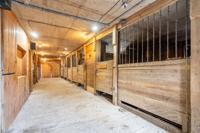Real eState
How the Metaverse could reshape the real estate landscape both virtually and in reality – USA TODAY


Imagine this scenario: You’re looking to buy a home in Atlanta, San Francisco and Tampa, Florida — three of the nation’s most competitive housing markets.
But, those dreams could get dashed waiting for a loan to help with the mortgage as multiple all-cash offers come rumbling in, squeezing you out of the process.
This is where companies such as UpEquity could assist.
The digital mortgage startup uses its underwriting technology that includes machine learning, artificial intelligence, and algorithms to verify clients’ applications and approvals faster. It also works with buyers who have all-cash offers.
UpEquity CEO and co-founder Tim Herman and chief technology officer Andy Pruitt claim they reduce closing times of home buying from the typical industry standard of about 50 days to 18.
They also believe newer tech that will power the much-prophesied metaverse may soon cut closing times even lower.
The service comes as there already is a land rush occurring in the virtual real estate market.
Then there’s Andrew Kiguel, the CEO of Tokens.com, a Toronto-based blockchain company. In October, the company bought about 50% of the metaverse Group, one of the world’s first virtual real estate companies for $1.7 million.
One month later, Kiguel’s company spent a then-record of nearly $2.5 million to buy 116 parcels of virtual real estate in the metaverse he hopes will attract brands who want to advertise in his space.
“I feel very, very confident about this,” Kiguel told USA TODAY. “I think we’re going to see a quick appreciation and monetize renting that land and space very soon.”
Both UpEquity and Tokens.com hope that the physical and digital real estate space will boom as the metaverse takes shape. Dubbed by many as the “next internet,” the metaverse is currently defined as a growing assortment of virtual sites that provide people the option of never having to leave their home for entertainment and social activities – an evolution accelerated as COVID-19 and its variants keep us confined.
The metaverse explained: From Facebook to Fortnite: The metaverse is calling. Are we ready?
If you build it, will they come?: Facebook plans to hire 10,000 in Europe to build ‘metaverse’
The metaverse: Under construction
The term metaverse gained more mainstream attention in October after Facebook renamed its parent company, Meta, with an increased focus on virtual reality (VR). But much of the metaverse also remains undefined, experts believe.
“There’s still no agreed-upon definition as we’re all still trying to figure out the convergence of physical and digital worlds,” said Cathy Hackl, a tech strategist who assists companies adapting to the metaverse.
The word metaverse is “perhaps the most overused and misused term in 2021,” said Brandon Ross, Rich Greenfield, and Mark Kelley, executives at LightShed Partners, a New York-based technology and media research firm.
However, Hackl said the technology that will power the metaverses would include VR, AR (Augmented Reality), blockchain, AI, machine learning, 5G and other immersive technologies.
“It’s not just one company or one technology. It’s much broader,” Hackl said.
►Talking Tech podcast: The metaverse explained: What is it? How will people use it?
Early believers
UpEquity believes metaverse technology will change the foundation of real estate sooner than later.
The startup considers itself among a rising class called “Power Buyers,” by working to help get those into the homes of their choice by making all-cash offers.
With fewer properties on the market compared to 2020, more than 33% of non-first-time home buyers were making all-cash offers compared to just 6% of first-time buyers in April, according to the National Association of Realtors.
Herman and chief technology officer Andy Pruitt agree that the metaverse will go beyond just wearing a VR headset and creating an avatar. Herman believes there’s also room for use cases, such as digital lenders “challenging the legacy mortgage industry” by helping qualified people buy actual homes quicker.
They said this could range from prospective buyers taking immersive 3D tours of homes to digitally map renderings of properties without actually stepping in or seeing the property in person. They said this type of tech went from fantasy to reality as safety precautions from COVID influenced buyer behavior.
Why?
If tech in the metaverse improves, home buyers will have to decide maybe in a matter of minutes instead of hours and days whether to buy a home in a highly competitive market.
And, UpEquity believes the metaverse will remove barriers for inspecting and buying home, and whether having an all-cash offer might make or break a deal.
“This will exponentially increase the number of potential buyers for the best homes and will exacerbate the supply and demand issues we are already facing,” Herman said. “There will be more offers on every home because it will be easier to get comfortable making an offer sight-unseen. Buyers will need tools, like an all-cash offer, in order to compete in this future.”
Pruitt said Millennials, who face high hurdles to homeownership, mostly lose out because they have smaller budgets, a higher rate of rejection from lenders, and don’t have enough cash readily available.
“We want to give them a chance to make an offer without the fear of being rejected and feeling resigned they will always be renters,” Pruitt said. “We don’t think that’s right or fair with helping to stabilize communities across the country.”
The company said it has an ambitious target of reducing home purchasing to a 10-day close by next year.
Pruitt said the two-year-old startup has worked with “thousands of buyers,” and has seen a 500% year-over-year growth in revenue and transactions. The company makes money from the interest of its loans.
Pruitt anticipates UpEquity will originate more than $1 billion in mortgages in the next 12 months. That projected figure is up from $100 million in 2020.
UpEquity is currently licensed in California, Texas, Colorado, Florida, Illinois and Georgia, with plans to expand to at least a dozen more states, Pruitt said.
“The future of how to buy homes is here; it’s just not evenly distributed yet,” Pruitt said.
The UpEquity execs believe that one of the key trends for the metaverse will be the crossover from digital into the physical world.
They believe that this trend will continue and even expand as consumers embrace metaverse technologies and will force companies like UpEquity to implement it into their business model.
“We’re still figuring it out,” Pruitt said.
Hackl estimates the next 10 years will be important for critical building as “each one of these metaverses will have different roles to play.”
Scooping up virtual land space
While the Metaverse Group is physically located in Toronto, its virtual headquarters is in Decentraland in Crypto Valley (think Silicon Valley in the metaverse), a virtual website where people can play games, hang out and attend events like concerts.
He quickly mentions that luxury brands such as Gucci and Louis Vuitton already have space in the metaverse via NFTs or nonfungible tokens. NFTs work on the blockchain, where every cryptocurrency transaction is processed, verified and recorded on a public virtual ledger — similar to other cryptocurrencies such as bitcoin.
So, what would prompt Kiguel and others to bankroll so much in digital land that you technically can’t touch? He’s betting on the potential profits from the evolving digital and virtual space within the metaverse.
Kiguel said what further motivated him to buy virtual land space in Decentraland’s Fashion Street district was seeing the site host a four-day metaverse music festival that had 80 artists and attracted 50,000 virtual attendees in October.
He plans to develop the area into a virtual fashion destination for luxury brands similar to Rodeo Drive in Beverly Hills and Fifth Avenue, one of the most famous street in New York City.
Shortly after Tokens.com’s purchase, New York-based metaverse real estate company Republic Realm announced it had spent a record-breaking $4.3 million on digital land through The Sandbox, a popular virtual real estate site.
Republic Realm told the Wall Street Journal it acquired 2,500 virtual land plots throughout 19 virtual worlds, with two specific investments centered on virtual real estate, including a mall, 100 virtual residences and also a private island.
Hackl, who owns some virtual real estate in The Sandbox and other platforms including SuperWorld and Upland, said buying property in the metaverse is “a bit more of a risk than a reward.” But she said what she bought has already increased in value.
Currently, Hackl said sites like Somnium Space, another virtual land site, has parcels going for $10,000, while on the secondary market the cheapest price for space on Decentraland and Sandbox is almost $14,000.
“I see this as owning a piece of the future of the internet,” Hackl said. “Owning pieces of the internet, for some may see it a silly frivolous thing, but I take it very seriously. It is not a game to me.”
Token.com’s Kiguel estimates his metaverse portfolio is valued at 10 times more than his purchase price. He said a parcel of land in the core of a virtual downtown, with potentially lots of visitor traffic, will be invaluable.
“It’s all about the location,” Kiguel said. “The more visitors who come, the more valuable the land, and the more a retailer and advertisers will be willing to spend to reach those people.”
Kiguel believes due to its immersive nature, the metaverse can be bigger than social media, which many use to try combatting the isolation stemming from the pandemic to elevate their business profile.
“It’s the next iteration,” Kiguel said. “The metaverse will give some power and control back to its users.”
Real eState
Waterdown home listed for $2M offers 'rural-style living' – Hamilton Spectator
/* OOVVUU Targeting */
const path = ‘/business/real-estate’;
const siteName = ‘thespec.com’;
let domain = ‘thestar.com’;
if (siteName === ‘thestar.com’)
domain = ‘thestar.com’;
else if (siteName === ‘niagarafallsreview.ca’)
domain = ‘niagara_falls_review’;
else if (siteName === ‘stcatharinesstandard.ca’)
domain = ‘st_catharines_standard’;
else if (siteName === ‘thepeterboroughexaminer.com’)
domain = ‘the_peterborough_examiner’;
else if (siteName === ‘therecord.com’)
domain = ‘the_record’;
else if (siteName === ‘thespec.com’)
domain = ‘the_spec’;
else if (siteName === ‘wellandtribune.ca’)
domain = ‘welland_tribune’;
else if (siteName === ‘bramptonguardian.com’)
domain = ‘brampton_guardian’;
else if (siteName === ‘caledonenterprise.com’)
domain = ‘caledon_enterprise’;
else if (siteName === ‘cambridgetimes.ca’)
domain = ‘cambridge_times’;
else if (siteName === ‘durhamregion.com’)
domain = ‘durham_region’;
else if (siteName === ‘guelphmercury.com’)
domain = ‘guelph_mercury’;
else if (siteName === ‘insidehalton.com’)
domain = ‘inside_halton’;
else if (siteName === ‘insideottawavalley.com’)
domain = ‘inside_ottawa_valley’;
else if (siteName === ‘mississauga.com’)
domain = ‘mississauga’;
else if (siteName === ‘muskokaregion.com’)
domain = ‘muskoka_region’;
else if (siteName === ‘newhamburgindependent.ca’)
domain = ‘new_hamburg_independent’;
else if (siteName === ‘niagarathisweek.com’)
domain = ‘niagara_this_week’;
else if (siteName === ‘northbaynipissing.com’)
domain = ‘north_bay_nipissing’;
else if (siteName === ‘northumberlandnews.com’)
domain = ‘northumberland_news’;
else if (siteName === ‘orangeville.com’)
domain = ‘orangeville’;
else if (siteName === ‘ourwindsor.ca’)
domain = ‘our_windsor’;
else if (siteName === ‘parrysound.com’)
domain = ‘parrysound’;
else if (siteName === ‘simcoe.com’)
domain = ‘simcoe’;
else if (siteName === ‘theifp.ca’)
domain = ‘the_ifp’;
else if (siteName === ‘waterloochronicle.ca’)
domain = ‘waterloo_chronicle’;
else if (siteName === ‘yorkregion.com’)
domain = ‘york_region’;
let sectionTag = ”;
try
if (domain === ‘thestar.com’ && path.indexOf(‘wires/’) = 0)
sectionTag = ‘/business’;
else if (path.indexOf(‘/autos’) >= 0)
sectionTag = ‘/autos’;
else if (path.indexOf(‘/entertainment’) >= 0)
sectionTag = ‘/entertainment’;
else if (path.indexOf(‘/life’) >= 0)
sectionTag = ‘/life’;
else if (path.indexOf(‘/news’) >= 0)
sectionTag = ‘/news’;
else if (path.indexOf(‘/politics’) >= 0)
sectionTag = ‘/politics’;
else if (path.indexOf(‘/sports’) >= 0)
sectionTag = ‘/sports’;
else if (path.indexOf(‘/opinion’) >= 0)
sectionTag = ‘/opinion’;
} catch (ex)
const descriptionUrl = ‘window.location.href’;
const vid = ‘mediainfo.reference_id’;
const cmsId = ‘2665777’;
let url = `https://pubads.g.doubleclick.net/gampad/ads?iu=/58580620/$domain/video/oovvuu$sectionTag&description_url=$descriptionUrl&vid=$vid&cmsid=$cmsId&tfcd=0&npa=0&sz=640×480&ad_rule=0&gdfp_req=1&output=vast&unviewed_position_start=1&env=vp&impl=s&correlator=`;
url = url.split(‘ ‘).join(”);
window.oovvuuReplacementAdServerURL = url;
#HamOntHouseHunt is a regular feature looking at houses for sale in the Hamilton area market. Have a tip? Email us at fhewitt@torstar.ca.
Price $1,999,900

The fully functional barn located on the property of 694 Centre Rd. in Waterdown.

The kitchen of 694 Centre Rd. in Waterdown.

The primary bedroom of 694 Centre Rd. in Waterdown.

The back deck of 694 Centre Rd. in Waterdown.
Real eState
Former HGTV star slapped with $10 million fine and jail time for real estate fraud – Fortune


Back when mortgage rates and home prices were more reasonable and manageable, homeowners invested in fixer-upper properties and made them their own. Now these types of projects aren’t as popular. But in the early-to-mid-2010s, HGTV shows including Fixer Upper, Love It or List It, and Flip It to Win It were all the rage as viewers binge-watched dilapidated homes transform into dream properties.
But as it turns out, one former HGTV star’s house-flipping show was masking major real estate fraud. On Tuesday, Charles “Todd” Hill, was sentenced to four years in jail and ordered to pay back nearly $10 million to his victims following his conviction. Los Gatos, Calif.–based Hill, 58, was the star of HGTV show Flip It to Win It, which aired in 2013 and featured Hill and his team purchasing dilapidated homes and fixing them up. Hill then sold them for a profit.
“Some see the huge amount of money in Silicon Valley real estate as a business opportunity,” Santa Clara County District Attorney Jeff Rosen said in a statement. “Others, unfortunately, see it as a criminal opportunity—and we will hold those people strictly accountable.”
What did Hill do?
According to the indictment shared with Fortune, the accusations against Hill happened between 2012 and 2014, around the time his show (which lasted just one season) began. The indictment shows 10 counts of grand theft of personal property exceeding $950,000; three counts of embezzlement; and one count of diversion of construction funds. Hill could not be reached by Fortune to comment on the indictment, conviction, or sentencing.
Hill was convicted last year of the multiple fraud schemes, including scams that happened before his show aired. This included a Ponzi scheme with evidence showing that Hill had spent laundered money on a rented apartment in San Francisco, hotels, vacations, and luxury cars, according to a press release from the Santa Clara County District Attorney’s Office. HGTV did not respond to requests for comment from Fortune ahead of publication.
“To hide the theft, he created false balance sheets and got loans using fraudulent information,” according to the district attorney’s office. In another case, Hill diverted construction money for personal use. But one of the strangest accounts came from an investor who had poured $250,000 into a property he wanted Hill to remodel.
Instead, during a tour of the home, the investor “found it to be a burnt-down shell with no work done on it.”
After the district attorney’s investigation, Hill was indicted in November 2019 and in September 2023 admitted his guilt and was convicted by plea of grand theft against all of his victims. He’ll have to pay restitution of more than $9.4 million and serve 10 years on probation.
Victims who spoke at Tuesday’s hearing said they’re still reeling from the financial and professional damages from the fraud, according to the district attorney’s office.
Real eState
Botched home sale costs Winnipeg man his right to sell real estate in Manitoba – CBC.ca


A Winnipeg man’s registration as a real estate salesman has been cancelled after a family vacated their home on a tight deadline for a sale that never went through, then changed brokerages and, months later, got $60,000 less for their house than what they expected when they moved out.
A Manitoba Securities Commission panel found Reginald Wayne Kehler engaged in professional misconduct and conduct unbecoming a registrant when he signed a document on behalf of sellers without their knowledge, reduced the listing price of a home without their approval, and didn’t tell them for nearly a month that a potential buyer hadn’t paid a promised $100,000 deposit.
The sellers, identified as D.R. and P.R. in the panel decision released Wednesday, were awarded $10,394 from the real estate reimbursement fund. Kehler was ordered to pay $12,075 to cover costs of the investigation and hearing.
The sellers were a military family who had to move in 2020 after the husband was posted to Ottawa.
They chose Kehler as their listing agent, because he had helped them find the home when they moved to Winnipeg in 2018, and they had a good relationship with him, the panel’s decision says.
They listed their house in May and on June 15, 2020, accepted an offer of $570,000 with possession on July 15. A deposit of $100,000 was to be paid within 72 hours of acceptance of the offer.
Kehler was the salesperson for both the buyer and the sellers — but the sellers say he never told them that.
A form that indicated the sellers knew he was also representing the buyer, dated June 15, 2020, was filed.
While it appeared to be signed with the sellers’ names, they said they didn’t see it until March 2021. One of the two wasn’t even in Winnipeg on June 15.
“Kehler, in his interview with commission staff, acknowledges that the sellers never signed this document — we note that the purported signatures on the form look nothing like the actual signatures of the sellers on other documents,” the decision says.
Kehler told commission staff he’d been authorized to sign on the sellers’ behalf, which they denied. The panel found them more believable.
Once the deal was made, the sellers, believing they had just a month before the buyer would take possession of their home, quickly packed up and prepared to move with their two young children.
Buyer never made deposit
Meanwhile, the buyer hadn’t made the $100,000 deposit before the deadline — but Kehler didn’t tell the sellers.
Kehler told commission staff that was because he thought the deposit was still coming, and he didn’t want to cause more stress for the sellers.
On July 10, just five days before the buyer was to take possession and the day before the family was leaving Winnipeg, the sellers spoke to Kehler — but he still didn’t tell them the deposit hadn’t been paid.
Kehler “said everything was fine,” according to the decision.
It wasn’t until the evening of July 13, when the family arrived in Toronto on their way to Ottawa and just 36 hours before the scheduled closing, that Kehler told them he’d never received the deposit.
Eventually, they received $4,000 of the deposit, but the sale of the house never closed. The sellers scrambled to extend the insurance on their old home and make sure they continued to pay the utility bills, the decision says.
Home relisted
Kehler then recommended they relist the home, and it went back on the market at $574,900.
On Aug. 10, 2020, Kehler recommended the price be reduced to $569,900. Instead, the seller said he should reduce the price to $567,900.
But when the seller looked at the online listing on Aug. 22, it was listed at $564,900.
The sellers also asked Kehler about maintaining the property, since they were no longer in Winnipeg. He agreed he would, but friends ended up going and mowing the lawn, the decision says.
The sellers asked Kehler and his brokerage about what could be done to “make things right,” the decision says, but they never received any responses.
On Sept. 5, they hired a new brokerage to sell the home. Under the new real estate salesman, they accepted an offer on Dec. 13, and closed the deal Jan. 2, 2021, receiving $507,500 for the home.
Kehler’s actions were “contrary to the best interests of the public” and undermined “public confidence in the real estate industry,” the decision says.
-
Media23 hours ago
DJT Stock Rises. Trump Media CEO Alleges Potential Market Manipulation. – Barron's
-
Investment23 hours ago
Private equity gears up for potential National Football League investments – Financial Times
-
Real eState15 hours ago
Botched home sale costs Winnipeg man his right to sell real estate in Manitoba – CBC.ca
-
News22 hours ago
Canada Child Benefit payment on Friday | CTV News – CTV News Toronto
-
Business24 hours ago
Gas prices see 'largest single-day jump since early 2022': En-Pro International – Yahoo Canada Finance
-
Business15 hours ago
Dow Jones Rises But S&P, Nasdaq Fall; Nvidia, SMCI Flash Sell Signals As Bitcoin's Fourth Halving Arrives – Investor's Business Daily
-
Media24 hours ago
Three drones downed after explosions heard in Iran’s Isfahan: State media – Al Jazeera English
-



 Science20 hours ago
Science20 hours agoMarine plankton could act as alert in mass extinction event: UVic researcher – Langley Advance Times









